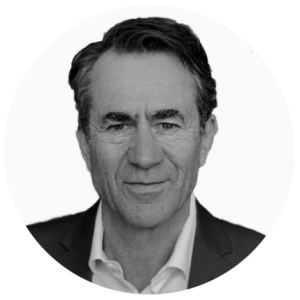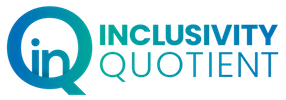The evidence is clear: Safe, respectful and inclusive workplaces are good for business.
So why is progress so slow?
Traditional methods to create more inclusive workplaces have been largely mandated or prescribed—a top-down, policy-driven approach offering little opportunity to authentically engage employees in co-creating a culture of belonging and respect.
The InQ Approach
At InQ, we embrace a human-centred approach, inviting leaders and teams to consider the benefits of inclusion—both personal and commercial—and the barriers that impede progress. This includes a deep, curious, sometimes confronting but always non-judgemental exploration of who we are and how we behave. What is it that informs our conscious and unconscious beliefs regarding our underrepresented and often underestimated colleagues? How do our socially conditioned biases play out at work? What can we do to mitigate the impact of bias and systemic barriers?
Co-creating solutions is key to the InQ approach. Rather than leaders mandating change, participants are invited to identify self-determined, informed solutions and the role they can personally play in fostering a culture of belonging and respect. Rather than passive passengers, participants become an integral part of building a safe and inclusive culture where everyone has equal opportunity to thrive.
InQ employs McKinsey’s Influence Model, an evidence-based change management methodology. Applied to fostering inclusion, it involves:
Creating a compelling narrative
Why does Inclusion really matter?
How will Inclusion benefit me, my work, my organisation?
Are we addressing the perceived threats and opportunities inherent in change?
Positively reinforcing change
Do our systems and processes support the cultural shift we are aiming to create?
Have we set ambitious yet realistic goals and a well-established approach to achieve them?
Are there positive reinforcement mechanisms in place to acknowledge contributions to achieving goals and support mechanisms when challenges present?
Role modelling desired behaviours
Do I witness my CEO and fellow leaders role-modelling safe, respectful and inclusive behaviours?
Do my colleagues respectfully speak up when witnessing suboptimal behaviour at work?
Do I have the courage to acknowledge when I fall short in bringing my best self to work and the will to do better the next time?
Supporting skills development
What is being asked of me?
What are the skills required to foster a more inclusive workplace?
Will I be supported, if necessary, to deliver what’s expected?
Informed by research and powered by personal stories, the approach surfaces the self-determined, measurable solutions that guide the creation of safe, respectful and inclusive workplaces.
Our Team

Coleen MacKinnon
Coleen MacKinnon is a workplace equity and inclusion practitioner with a passion for accelerating positive social change. She is the Founder of Inclusivity Quotient (InQ), a boutique consultancy specialised in authentically engaging men and women in co-creating safe, respectful and high-performing organisations.
Coleen began her career with Catalyst, a NY-based DEI research and consulting firm serving mainly Fortune 500 companies. She serves as Advisor to the Consult Australia Champions of Change and is a former board member with Women for Election Australia.
Through her advocacy work, Coleen has contributed to a range of social issues, both in Australia and in her native Canada: workplace equality, LGBTQIA+ rights and protections, and climate action. She was a founding member of the 2019 representative democracy initiative that supported Zali Steggall’s successful bid for federal office and launched a national Independents movement.
Prior to her inclusive leadership and culture work, Coleen spent 10 years consulting to the social and public sectors in the area of capacity building and communications. She has also held senior management positions at McGill University and the Montreal Childrens’ Hospital Foundation.

Paul Collings
Paul Collings is a consultant, facilitator and coach working with a range of clients in the areas of organisational culture, senior team effectiveness and leadership development.
A former Associate Principal with McKinsey, Paul was part of a team that developed and delivered the firm’s pioneering approach to creating high-performance cultures.
Paul has had a lifelong fascination with why humans (including himself) behave the way they do, how to ‘evolve’ behaviours to those that are more effective, and how context and environment (culture) influences behaviour. It was this interest in the human side of business that led him from a more traditional strategic consulting career into this line of work.
Paul has helped clients around the globe to improve business performance by addressing the human aspects of the workplace, specifically culture, leadership and teamwork.
He applies a solid understanding of what drives performance (the ‘hard’ side) based on his experience as a strategy consultant and business leader combined with his current specialisations (the so–called ‘soft’ side – although as one CEO remarked: ‘If this is the soft stuff, how come it’s so damn hard?!).

Matthew Brierley
Matthew is an engineer, an author and a passionate advocate for gender equality. With over 20 years of international heavy industry experience in various engineering, maintenance and operations leadership roles, Matthew now works with organisations to create more inclusive and psychologically safe workplaces. Matthew has experience facilitating inclusive, foundational and safety leadership workshops and promoting the importance of allyship.
